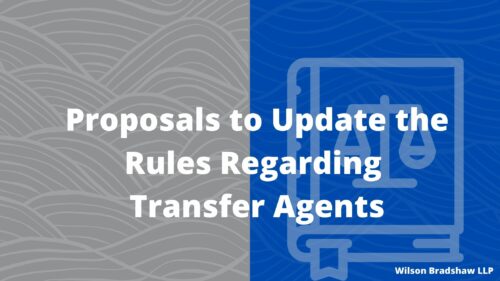Category Archives: Capital Markets
SEC Director: The Importance of Gatekeepers
Directors Forum 2016 Keynote Address Andrew Ceresney, Director, Division of Enforcement San Diego, California Jan. [...]
Jan
Going Public with a Reverse Merger
Going Public There are many benefits, and some downsides, to taking a company public. Going [...]
Jan
Going Public with a Reverse Merger
Going Public There are many benefits, and some downsides, to taking a company public. Going [...]
Jan
Going Public with a Reverse Merger
Going Public There are many benefits, and some downsides, to taking a company public. Going [...]
Jan
Proposals to Update the Rules Regarding Transfer Agents
This is one of the greatest speeches that Commissioner Aguilar has ever given. It’s an [...]
Dec
Proposals to Update the Rules Regarding Transfer Agents
This is one of the greatest speeches that Commissioner Aguilar has ever given. It’s an [...]
Dec
Proposals to Update the Rules Regarding Transfer Agents
This is one of the greatest speeches that Commissioner Aguilar has ever given. It’s an [...]
Dec
How Does a Public Company Change its Fiscal Year-End?
How a Public Company Changes its Fiscal Year Are you thinking of changing your fiscal [...]
Nov
How Does a Public Company Change its Fiscal Year-End?
How a Public Company Changes its Fiscal Year Are you thinking of changing your fiscal [...]
Nov
How Does a Public Company Change its Fiscal Year-End?
How a Public Company Changes its Fiscal Year Are you thinking of changing your fiscal [...]
Nov




